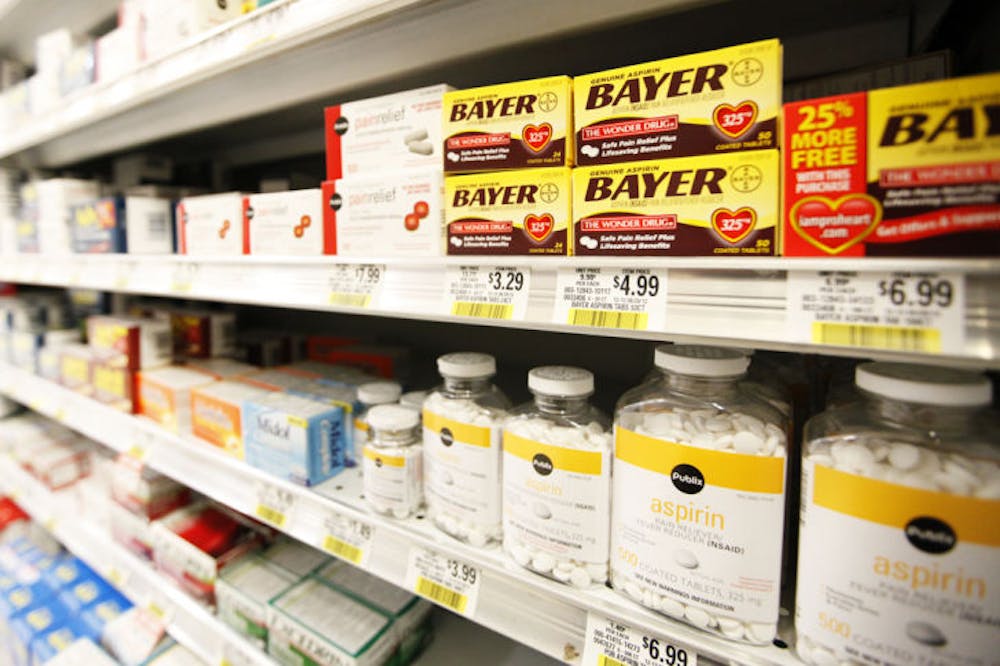An aspirin a day might keep skin cancer away.
A new study comprised of about 60,000 postmenopausal women discovered that people who used aspirin on a regular basis were 21 percent less likely to be diagnosed with the deadliest form of skin cancer: melanoma.
“Aspirin is kind of a wondrous drug because people are continually finding new uses for it,” said Paul Doering, pharmacy professor at the UF College of Pharmacy, “anywhere from protection against heart attacks, to protection against colon cancer. The list is a mile long of things that aspirin is allegedly good for.”
Aspirin use for five years or more was linked to a 30 percent reduction in melanoma risk, according to a study published in the journal “Cancer.”
However, Doering said there is a terrible temptation to associate what they found with a direct cause-and-effect relationship. He said this type of research is observational, where they don’t actually administer drugs to people and watch them for a period of time to see what goes on with them.
Saajan Patel, a 21-year-old UF College of Pharmacy graduate student, said participants need to be in a controlled environment. They can’t sunbathe and take aspirin, assuming it will prevent skin cancer, he said.
The study did not conclude aspirin is the cause of the decrease in cancer risk. It simply found regular use was associated with a drop in risk among Caucasian women who were studied. The study relied on self-reports of aspirin use.
“We have to be very careful to interpret, ‘what does this really mean?’” Doering said. “I think it’s way premature to suggest that all women out there ought to gobble down an aspirin every day to prevent skin cancer.”
A new study shows postmenopausal women who use aspirin regularly are 21 percent less likely to be diagnosed with melanoma.






